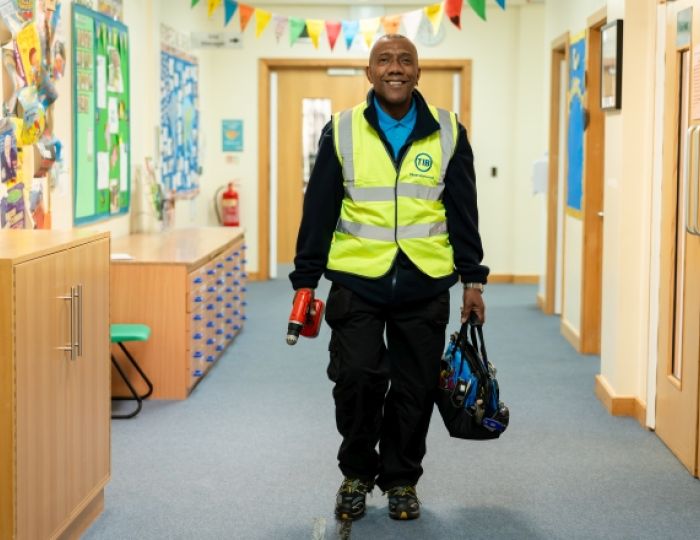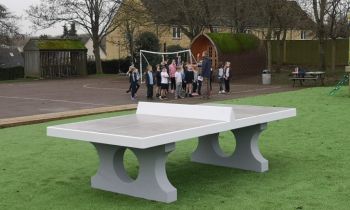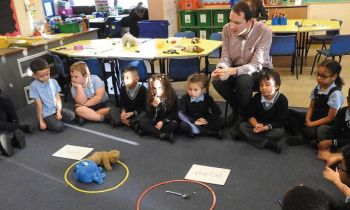Schools have a huge role to play in waste management. By setting out a clear waste management plan, they can not only help to protect the environment while making cost savings, but also set a positive daily example to staff, students, families and community groups, and do their bit to promote long-term, environmentally-aware lifestyle choices.
The same applies to any refurbishments, construction works and other extensive projects that a school might be considering. With appropriate preparations in place, a number of waste and cost savings can be realised throughout the process.
School waste in perspective
UK primary schools produce a significant amount of waste. According to research carried out by the Waste and Resources Action Programme (WRAP), primary schools produce up to 45kg of waste per pupil each year. The DfE estimates that there were approximately 4,727,090 pupils attending state-funded primary schools in England during 2018/19 (see tinyurl.com/dfe-ns-19), which amounts to the creation of more than 212 million kilograms of waste annually.
At the same time, however, WRAP’s research indicates that up to 78% of the waste material produced by schools in England each day – such as food, paper and card – can be easily recycled or composted. The question to therefore consider is how much are you throwing away?
To understand the types of waste you have and how they’re being produced, it’s vital to set a school benchmark via the carrying out of a waste audit. This will help identify possible areas of improvement – often challenging conventional approaches to waste disposal in the process – and compel you to think differently about your existing waste disposal procedures.
You’ll then be able to provide your staff with a plan to actively reduce the amount of waste produced by the school through early intervention and making better choices from the outset. An audit should also deliver an accurate forecast of potentially reusable and recyclable items, and prompt considerations around alternative disposal options for certain items, such as charitable donations. This will help you develop a waste management strategy that the whole school can adhere to, and give you a means of clearly identifying results and where cost savings can be made.
Be ‘waste wise’
School leaders have the ability to cascade best practice behaviours towards waste and recycling across the whole school, and further out to the wider school community, including families and community groups.
Everyone, from pupils and teachers through to caretakers, kitchen staff, office staff and governors, need to be actively engaged with, and have ownership of, a school’s waste management strategy. This can be done by implementing composting initiatives for food waste and following a ‘reduce, reuse, repurpose and recycle’ approach to dealing with packaging and spent stationery supplies, as outlined below:
Reduce
Make a conscious effort to produce less waste. Review your procurement processes, streamline your orders where possible and seek out recyclable items. Office staff should only print out documents when absolutely necessary, and efforts should be made to reduce the presence of single-use plastics in your school as much as possible.
Reuse
This is where thinking differently about waste really comes into its own. Old games and toys can be donated to local playgroups, hospitals and charity shops, while spent packaging and stationery can be used in a multitude of creative and imaginative ways. These might include recycling used classroom paper supplies for papier-mâché tasks, and employing egg cartons, cardboard boxes and toilet rolls in various arts and crafts activities. You can find plenty of inspiration via Pinterest, YouTube and elsewhere.
Repurpose
Why not encourage your pupils’ critical thinking and problem-solving skills by turning old objects into new ones? Empty food jars are perfect for storing paper clips, rubber bands and other small items; old wellington boots can be repurposed as colourful planters. Your pupils could be set the challenge of submitting entries to a ‘recycled robot competition’. The kitchen staff can help to implement a combined composting scheme and worm farm.
Recycle
Recycling education is paramount if the school community is to properly understand the importance of recycling and changing behaviours. Provide recycling/ segregation points in busy areas around the school and deliver clear instructions as to what should go where. The main priority is to raise awareness – hold an assembly on the topic of waste and its environmental impact; provide information on your website; put posters up; provide training to teachers and ancillary staff; set targets. A good way of maintaining this is to appoint recycling monitors who can help ensure that your on-site segregation proceeds smoothly. Regularly check bins for signs of contamination and establish a reliable reporting system so that any issues can be promptly ironed out.
Draw up a list of responsibilities that each group within the school will need to adopt and provide relevant training. Rigorous auditing and establishing best practice to follow can help schools simultaneously reduce the amount of waste they produce by up to 25%, save costs, help the environment and educate their pupils.
Environmental literacy
Russell Lunn, headteacher at Sywell CEVA Primary School, recently engaged a new school’s programme, Waste Wise Kids, to help educate the school’s community about waste and sustainability.
“We’ve found that introducing the topic of waste management to our pupils has spurred the whole school into action,” he says. “The children are so excited to show how capable they are, and to think of new ideas for how the school can reduce waste.”
Spratton Hall in Northamptonshire has meanwhile created an Eco Club for pupils to put recycling initiatives into practice. According to headteacher Simon Clarke, “They’ve shown commitment to acting environmentally responsibly by taking part in a number of activities, such as making compost heaps, making and recycling wrapping paper; birdwatching for the RSPB; making bird feeders from recycled packaging; and collecting rubbish in local villages.”
Waste Wise Kids
Waste Wise Kids is a UK-wide teaching programme aimed at fourto 12-years-olds that focuses on waste, recycling and sustainability. Freely available to all primary schools, it’s structured around educating children about the waste hierarchy, examining different waste types, what happens to waste after it’s disposed of and its subsequent impact on the environment.
The programme includes an on-site presentation, various tasks and experiments, competitions and handouts (printed on recycled paper). Children are actively encouraged to think about the waste created at home and at school, and what they can do to reduce, reuse, repurpose and recycle. Schools can request a Waste Wise Kids presentation pack or an on-site visit – a key objective of the programme is to see the notion of being ‘waste wise’ integrated across the curriculum, rather than being seen as an add-on. encore-environment.com/waste-wise-kids
Rachel Rowley is a waste management and environmental specialist at Encore Environment.










